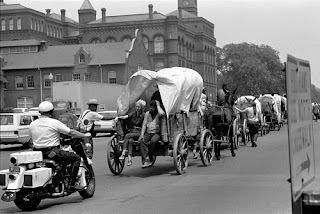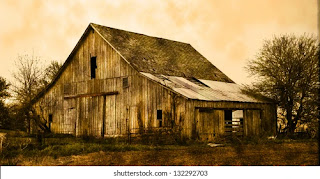The Mule Train, An Untold Story
Winona, Mississippi is a sleepy little town nestled between I55 north and Highway 82 about 120 miles south of Memphis. No one would have ever imagined that beacons of equality lived among the roughly 5,000 black and white residents in the late 1960’s
MS racial tensions were as hot as the relentless sun, when the Mule Train, or Poor People’s March, set out from Marks, MS bound for Washington DC in June, 1968. This was the brainchild of Robert Kennedy and put into action by Martin Luther King who had visited Marks earlier in the spring. Dr. King chose the town as the starting point for this historical march; famously stating “because it was the poorest town in the poorest state”, and symbolic of the Civil Rights struggle.
The route was jam packed with the National Press and hundreds of law enforcement officers. At every town the marchers were met with angry whites and proud blacks. This was still the era of “White” only drinking fountains and public toilets, which were guarded by zealous whites. As expected, the blacks were accosted and challenged at every stop.
Soon word reached Winona that the Mule Train would be approaching later that afternoon and the town braced for the worst. This little town had just been in the national news for the vicious beating a black activist, Fannie Lou Hamer, while she was in police custody.
But amidst the seething anger, on both sides, were two quiet educators who had formed strong alliance to ensure a successful desegregation of the public school system. Dr. Tom Dulin was the white superintendent of schools and Dr. Samuel Winbush was the Principal of the black schools.
With hopes of averting a dangerous clash, they came together and made a proposal to the leaders of the march. They would open the black school as a place of refuge for the tired marchers and their mules. They called in the cafeteria staff who began preparing meals for the participants, brought feed and water for the mules and opened the gym which had showers for everyone to use. The agreement was that they would stay two days and then move on in their journey.
The angry mob, spoiling for a fight, was sadly disappointed when the marchers were met on the outskirts of town and led to the safety of the school grounds.
Archives from the local paper, The Winona Times, May 30, 1968, make no reference to the “train” passing through Winona, other than a comment from the editor, Hembree Brandon. He had driven to the little town just north, Duck Hill, as the Mule Train passed by and he scathingly wrote about the excessive expense to tax payers for the Highway Patrol, FBI and local law enforcement to protect the marchers.
So this is the untold story, a violent confrontation was averted that hot Mississippi day, when two quiet, humble educators put their heads together and thought outside of the box of boiling racial tension. Much like the parable of Jesus facing the angry mob and quelling violence, these two men offered respite to their fellow men in their struggle for equality despite the potential danger. They took action.




Comments
Post a Comment